A Home on the Domain
With a number of innovative new housing programs, the University is making it easier for employees to live on campus. And, in the process, it’s building the kind of community it promises to students.
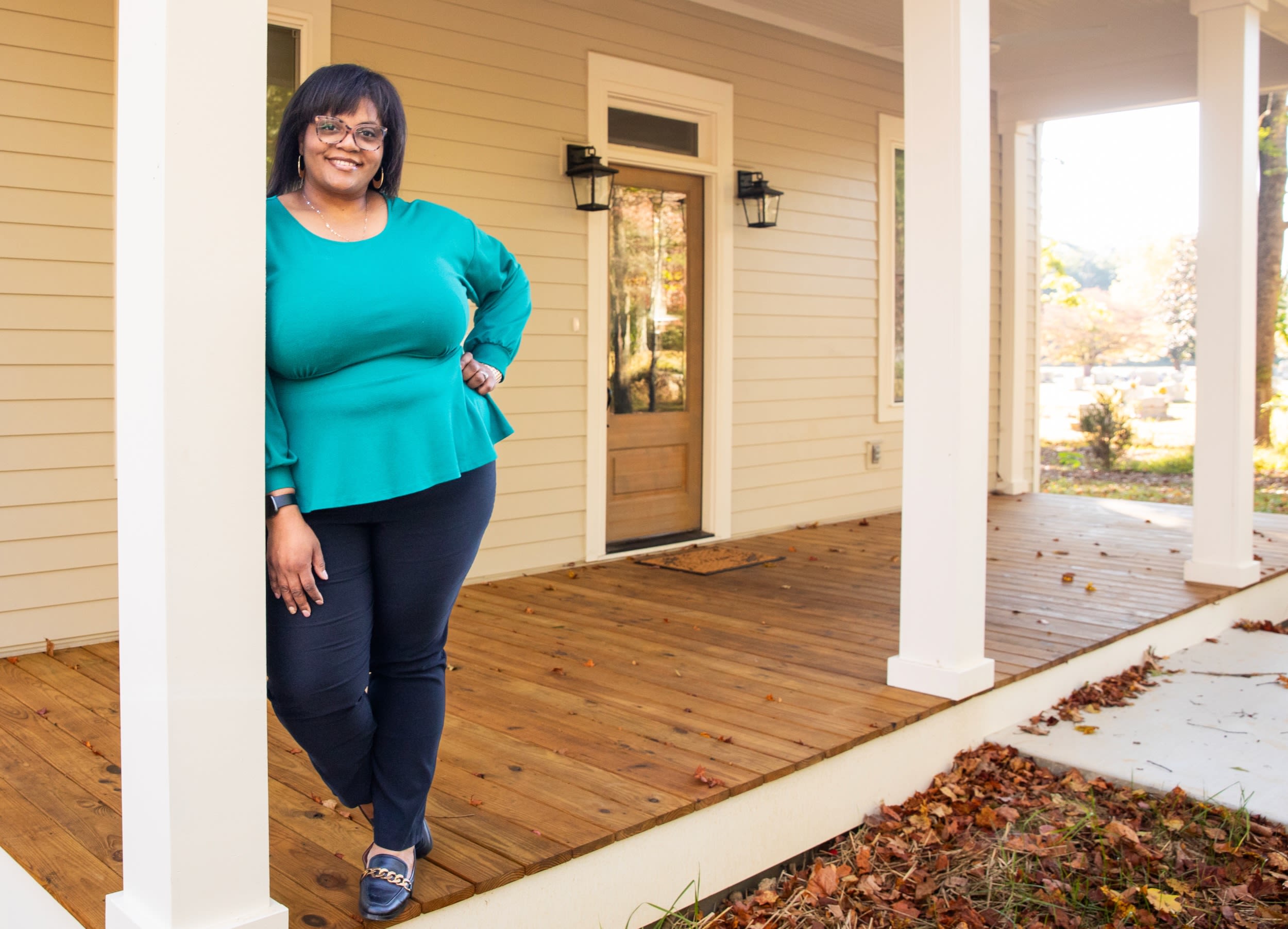
One of the key selling points of a Sewanee education has always been the promise of close relationships—with fellow students, sure, but also with all the other people who make up a college community: administrators, coaches, staff, and, especially, faculty members. The pitch goes something like this: You’ll get to know your professors outside the classroom as well as in it. You’ll bump into them sipping a latte at Stirling’s, worshiping at All Saints’ Chapel on Sunday morning, sitting next to you at a basketball game, or walking their dog in Manigault Park. Your academic experience will be enriched by living in community with those who have so much to teach. It’s a powerful promise, and one that Sewanee has delivered on since its founding.
In recent years, however, an increasingly tight real estate market in and around Sewanee has threatened the careful balance that makes this particular vision of Arcadia possible. Faced with limited, and often unreachably pricey, options for home buying on the Domain, faculty and staff members look elsewhere, sometimes as much as an hour’s drive or more away from campus. Others would rather rent than buy but find the University’s inventory of rental housing inaccessible due to high demand. In a way, Sewanee has become a victim of its own appeal. A range of people would like to live, retire, or own a second home here—to enjoy the natural beauty and many cultural opportunities on offer—and that drives prices up for the small number of houses that reach the market.
Over the past three decades, the University has taken steps to help make campus housing more available and attainable for faculty and staff. Committees have been convened to study housing options, and entire neighborhoods of new-construction homes have been established on the Domain. But in the last couple of years, there’s been a renewed focus on the issue, and a number of innovative programs have been proposed and set in motion. Here are five ways Sewanee is helping realize the promise of a campus where students, faculty, and staff live in close community:
Sewanee Village Ventures Created
In 2021, with an eye toward revitalizing the business district that many people know as “downtown Sewanee” and, more recently, as the “Sewanee Village,” the University’s Board of Regents created Sewanee Village Ventures (SVV) to make investments in residential, retail, and hospitality endeavors for the community. The board’s Investment Management Committee committed to allocating $10 million from the University’s endowment to invest in these initiatives. SVV is led by David Shipps, C’88, vice president for economic development and community relations, and managed by a board composed a regent representative, a trustee representative, and six individuals who are not formally affiliated with the University.
A year later, the University commissioned a study of the Village and the broader Domain by the real estate and land-use experts at the Urban Land Institute (ULI). The ULI report cautioned against investing heavily in commercial development until there was sufficient population density on campus to support the businesses the University hoped to attract.
The next step was a no-brainer. At the same time the University was looking to attract more people to live on the Domain, faculty and staff who wanted to be here were having trouble finding housing to rent or buy. SVV turned its attention to increasing the number and kinds of available housing options, which, so far, has led to the following four initiatives.
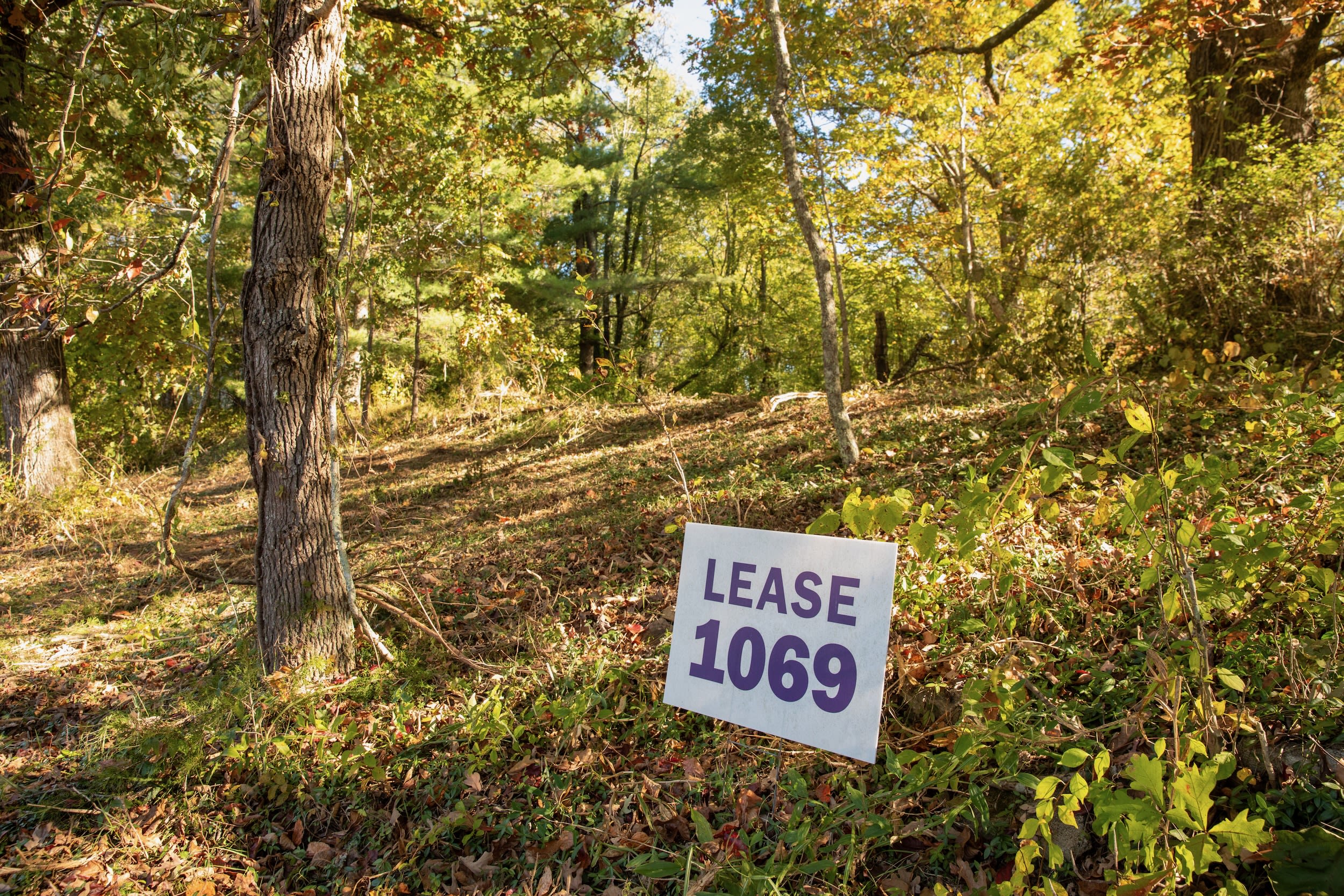
Around campus, signs mark leaseholds newly made available for employees to build homes.
Around campus, signs mark leaseholds newly made available for employees to build homes.
New Leaseholds Made Available
For University employees interested in building new houses, finding land to put them on has long been a challenge. The residential areas of the Domain are divided into leaseholds, with a single residence allowed on each. In order to find places where employees might build, the University went back to the drawing board, or more specifically, the plat map.
Superintendent of Leases Sallie Green and her staff pored over University maps to find spots where new houses could be built and ended up creating 17 new leaseholds. Many of these new leaseholds were “infill”—lots between two existing leaseholds that offered room for new construction. The new leaseholds were offered to Sewanee employees, who simply had to claim the lease and find a builder. Construction is underway on two of the new properties for employees, with more to come.
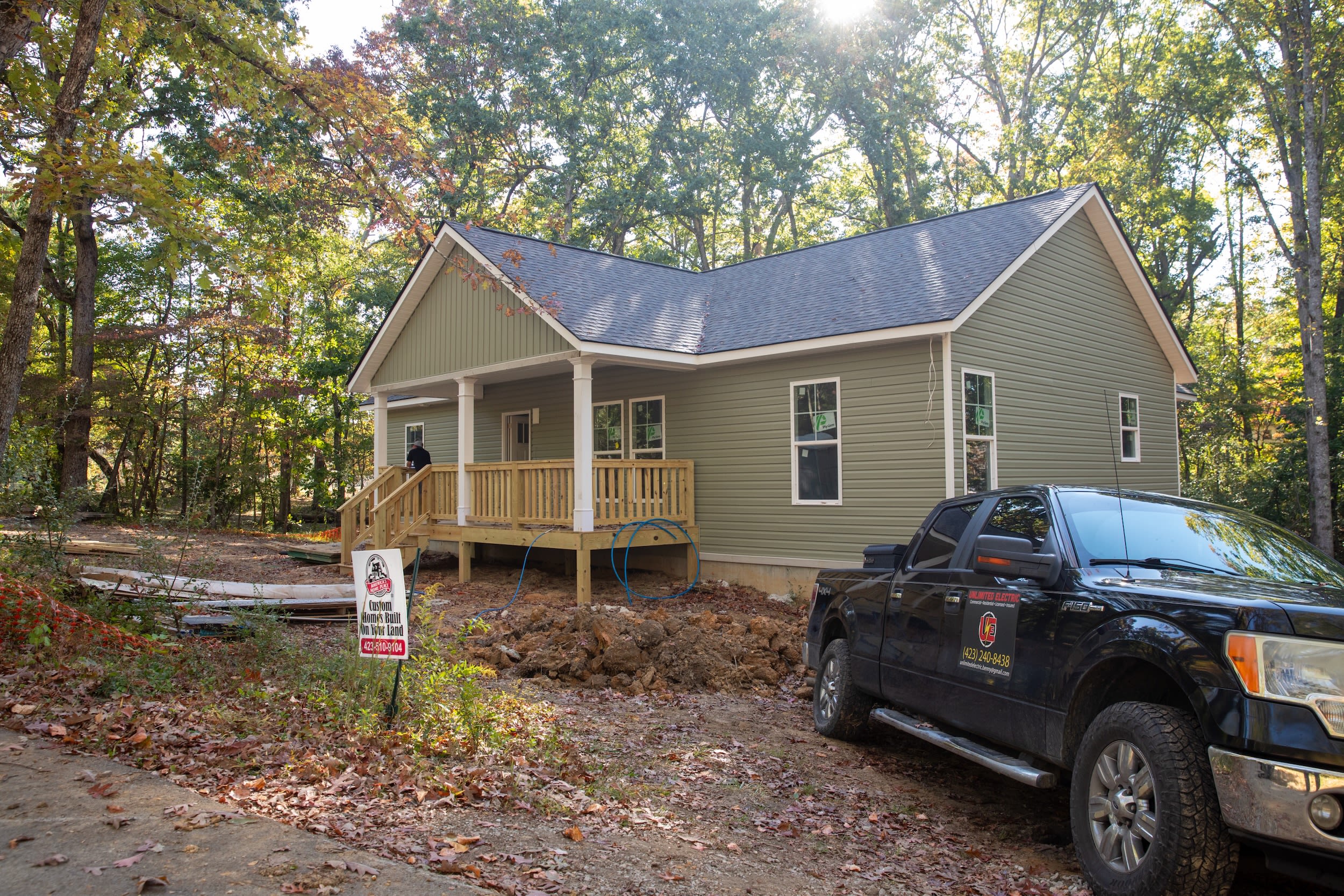
An employee's house currently under construction on a newly created leasehold.
An employee's house currently under construction on a newly created leasehold.
New Houses Built by Sewanee Village Ventures
Not every Sewanee employee in the market for housing is interested in managing the construction of a new home. That’s why Sewanee Village Ventures claimed five of the new leaseholds and had new houses built on each. Any employee interested in one of these new houses was able to enter a drawing to determine who would get the opportunity to purchase one.
On a Friday afternoon in July 2023, the drawing was held in a classroom in Walsh-Ellett Hall. After the numbers were pulled, each of the five nearly completed houses was claimed, and five employees who didn’t already have a leasehold were on their way to owning a brand-new home on central campus. These houses came with a unique covenant: When the house is eventually resold, it can be sold only to a University employee, guaranteeing that the houses will not be eventually purchased by non-employees.
“We believed that building these homes was going to be very well received, because we knew many employees had been frustrated by the fact that they were unable to buy a home, particularly at the prices on the resale market,” says Shipps. “The price points of the houses sold by Sewanee Village Ventures were very attractive.”
There was so much interest in the initiative that Shipps says SVV will be looking to build more homes on more new leaseholds in the future.
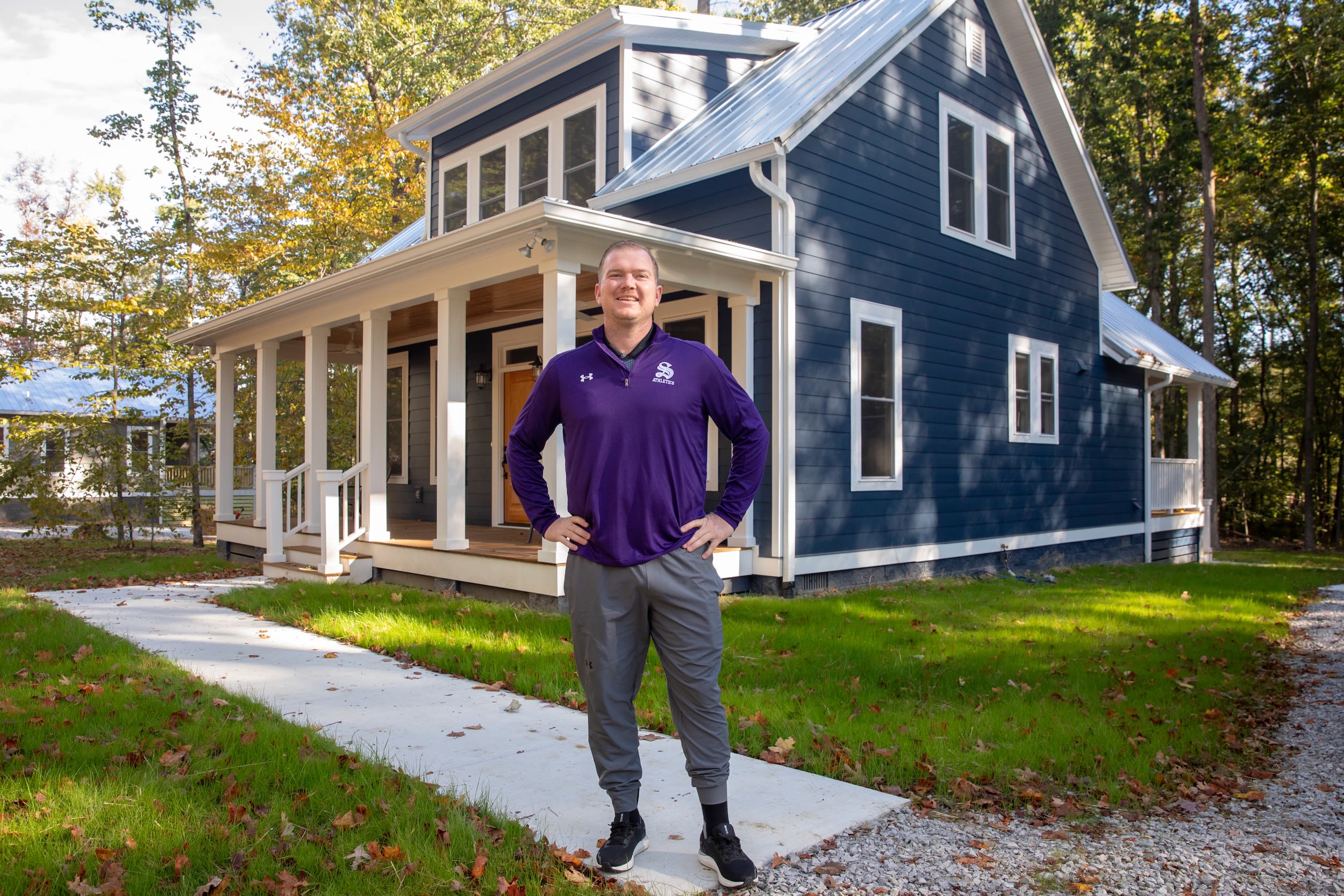
Sewanee men's soccer Head Coach Tony Pacella purchased one of the SVV houses and moved from Chattanooga to Sewanee.
Sewanee men's soccer Head Coach Tony Pacella purchased one of the SVV houses and moved from Chattanooga to Sewanee.
Financing Programs Launched
Some of the most innovative work done to promote home buying on the Domain has led to the University establishing three separate financing programs, each of which reduces barriers to home ownership for employees. The first is a program that funds short-term interest-free construction loans for employees to help pay for the cost of building. Second is a program that offers matching loans from the University to supplement the down payment on a home loan. Participants can contribute as little as 5% of the purchase price of the home toward the loan down payment to receive the match.
Finally, the University recently established a program similar to those that are in place at other colleges and universities that happen to be located in areas where the cost of home ownership is high. The program, launched in June 2023, creates a unique shared-equity partnership between the University and the home buyer, with Sewanee providing up to 20% of funding toward the purchase of a home on a University leasehold. The University maintains its share of equity during the period the home is owned by the employee, and, if desired, the employee can buy the University’s share at any time.
“In a fairly rapid way, the University put together these programs that are already making a difference,” says Shipps, noting that there are currently employees making use of each of the three. “They’re very different avenues to pursue. If you're a qualified employee who would like to own a home, you can think about building or buying in three different ways.”
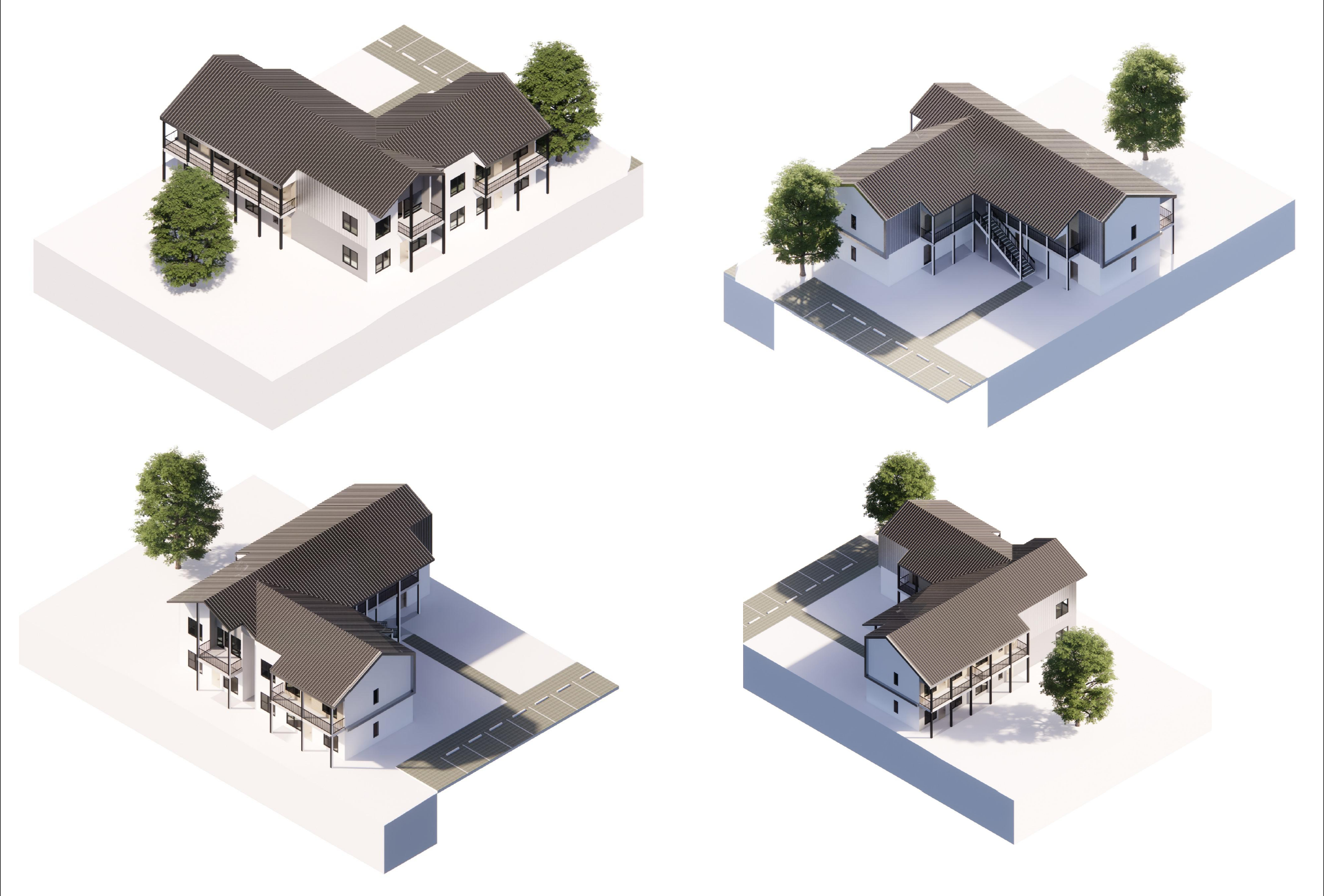
Architectural renderings of the new apartment project to be built on Highway 41A. Construction is slated to begin in early 2024.
Architectural renderings of the new apartment project to be built on Highway 41A. Construction is slated to begin in early 2024.
New Apartment Project Approved
Of course, some employees aren’t looking to buy a house. Visiting professors, assistant athletic coaches, and staff members who are recent college graduates themselves are just some of the members of the Sewanee employee population who are interested in living on or close to campus but would rather rent than buy. For many years, the University has offered dozens of rental options, mostly houses and duplexes scattered around central campus, with some concentrated in the Woodlands neighborhood off Roark’s Cove Road. But the inventory is aging—and limited.
Last year, Acting Provost Scott Wilson convened a study committee to explore new opportunities for rental housing on the Domain. With the committee’s recommendations in hand, in October 2022 SVV's board recommended, and the Investment Management Committee approved, the purchase of a vacant leasehold located on Highway 41A between Alabama Avenue and Kennerly Road for the purpose of exploring the construction of apartments. And in August 2023, the Investment Management Committee approved a proposal to build as many as 48 apartments for employees on the site.
The plan is to start construction on six buildings, each containing eight apartments, in early 2024. The buildings could open to residents as early as summer 2025. “The project will have a very prominent location at the entrance to the University, so we’re making sure that the buildings look like they belong in Sewanee,” Shipps says. The apartment buildings will be situated on a little over six acres, will make good use of the topography of the land, and be built with exterior materials consistent with Sewanee architecture.
The apartment project will allow the University to welcome employees who want to live on campus but are currently unable to. “These employees will now be a part of the tapestry of the campus experience,” says Shipps. “I think it’s going to be a transformative project in many ways, and will help us more readily achieve the promise of being in community with our students.”
